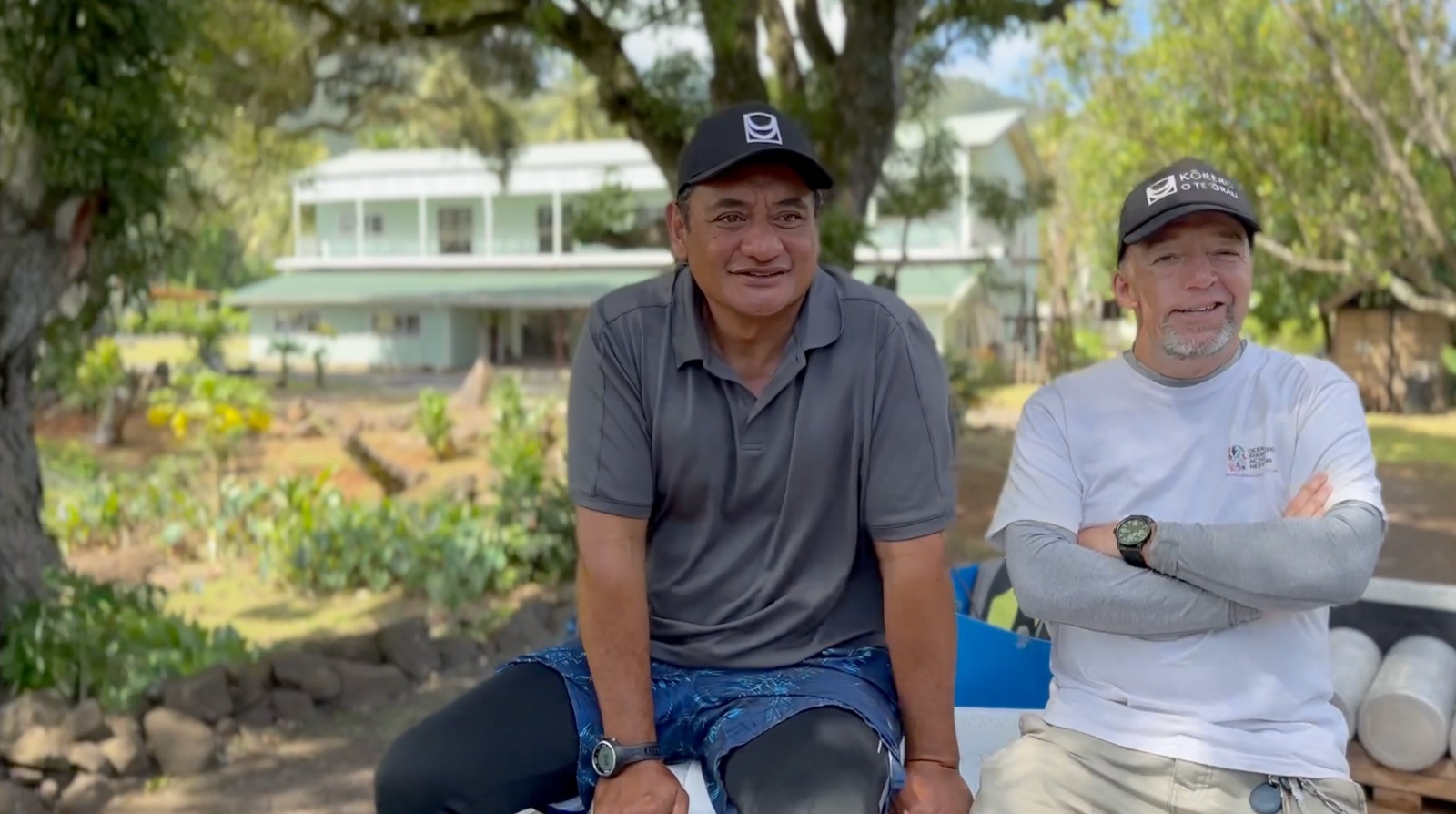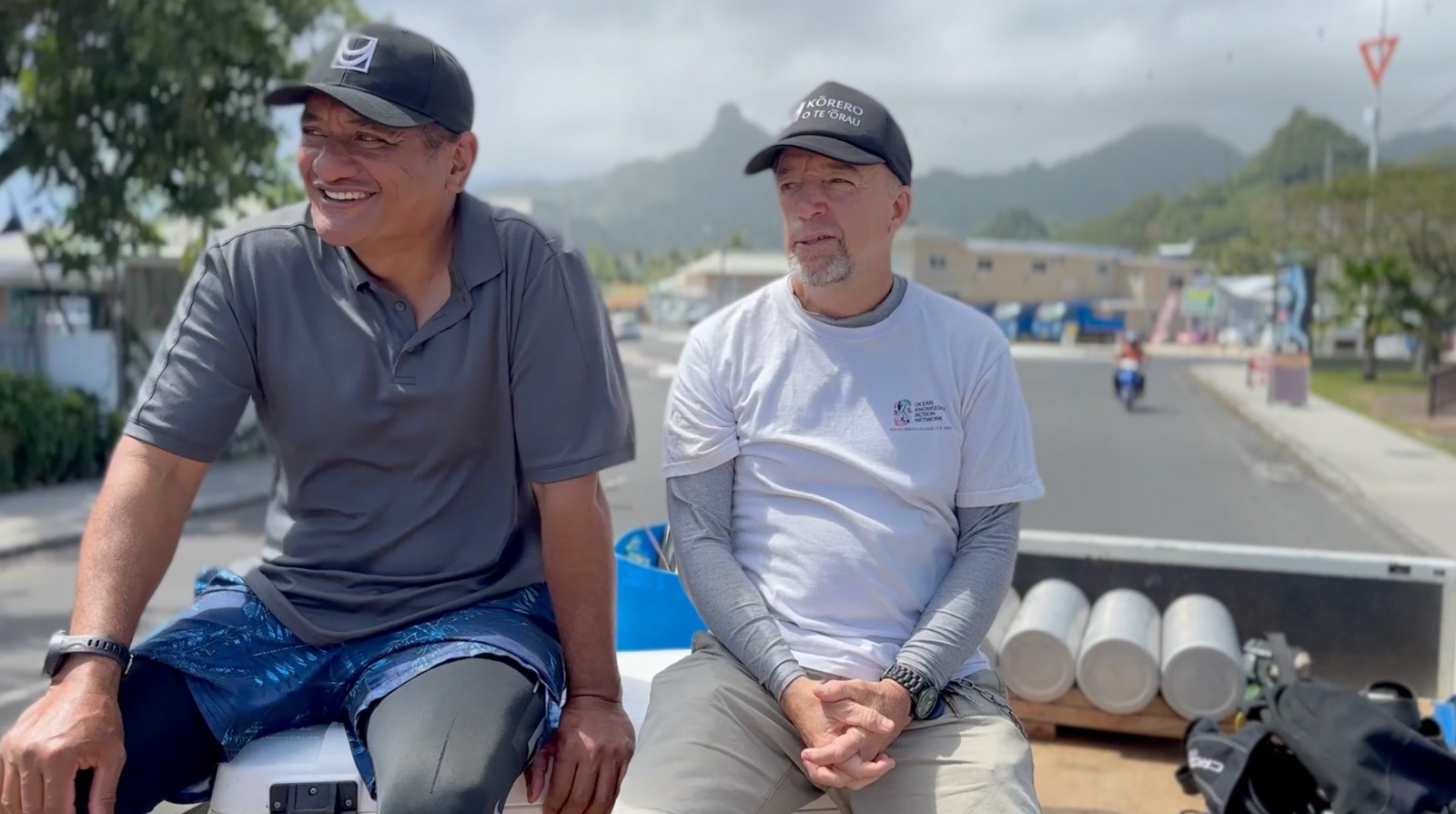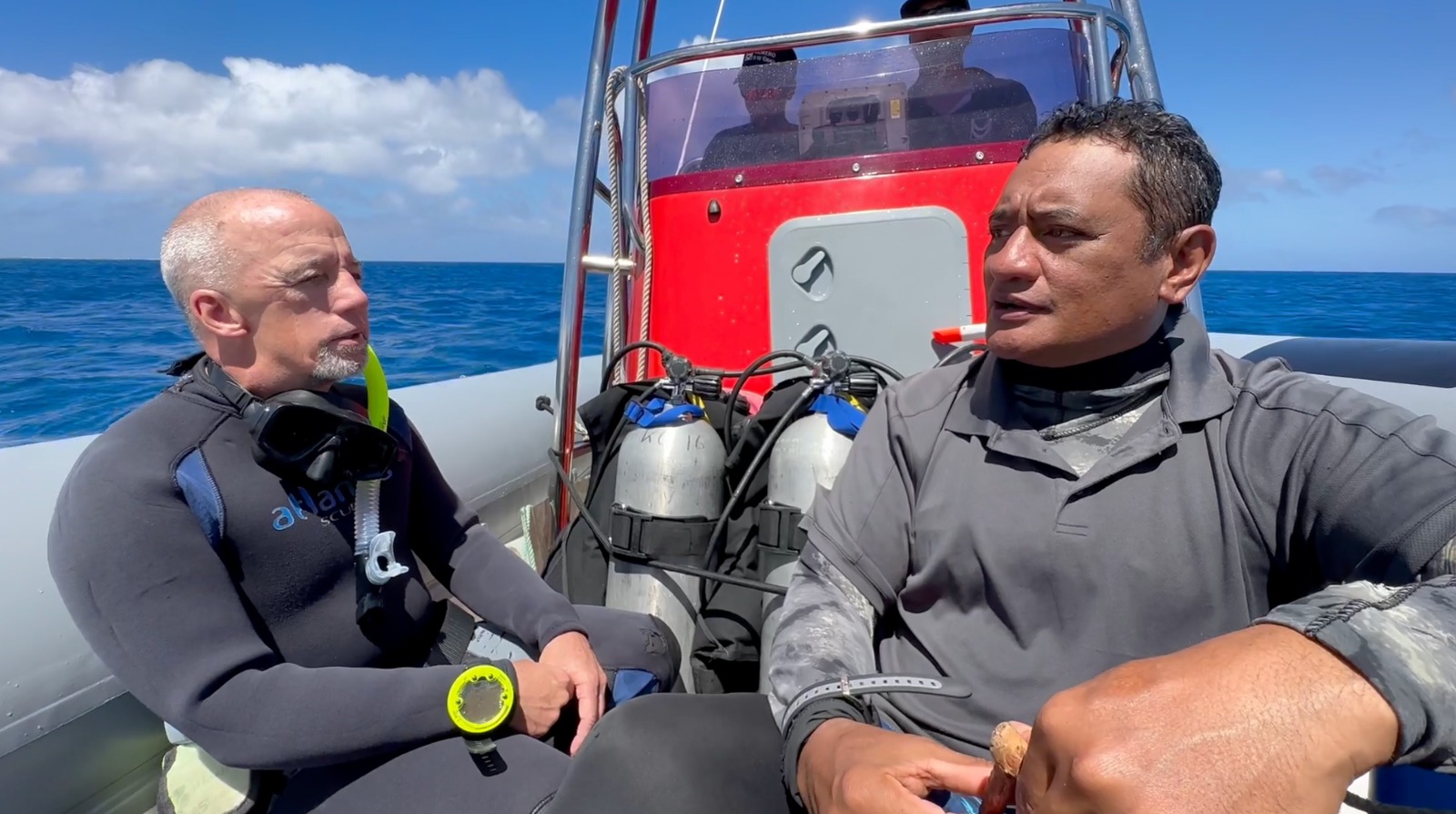Building a Knowledge Action Network In the Indigenous Communities of the South Pacific

The Ocean Knowledge Action Network is a bottom-up, peer-to-peer network. Even though our International Project Office (IPO) has been in existence for just over two years, we already have active members in more than 27 countries and on every continent but Antarctica.
Most importantly, ours is a network where we value trust and communication above all else.
During this initial phase of our work, we have set out to find new and more effective ways of passing knowledge up and around in our network; one built on trusted relationships. We do this by meeting monthly online, rotating time zones for our calls, and giving our community members time to get to know each other and to exchange knowledge and experiences. Our monthly one-on-one breakout session – that randomly pairs up Ocean KAN members – is one of the most popular and productive ways we work and has led to joint proposal writing, new gender charters, meet-ups and side events at big meetings and COPs, and vibrant learning circles focused on mental wellbeing for conservation professionals, storytelling and art, and even blockchain approaches for science.
Not all Ocean KAN members, however, are able to meet with us remotely. Some live in places with exceedingly poor internet. Others live in a time zone that makes real-time communication with the IPO, and much of the rest of the Ocean KAN, difficult. Our Austronesian Ocean KAN sub-community is one such community – geographically distant and 12 time zones from the IPO office.
The Austronesian diaspora describes a vast migration of people, originating from the island of Taiwan and spreading throughout the Indo-Pacific, from Madagascar to Easter Island. Among this vast group of Indigenous Peoples, the Ocean KAN community includes scientists and researchers from the Dulan Community of Taiwan, Wallis et Futuna, French Polynesia, and the Māori communities of the Cook Islands and Aotearoa. In all cases, our Austronesian members are involved in conducting different forms of sustainability science in real-world settings and many are working directly to inform traditional leaders and to prepare future leaders. All share strikingly similar cultural traditions, approaches, and values. All are eager for more peer-to-peer knowledge exchange. Yet, few already know each other and language is a barrier.
How then can we promote bottom-up and peer-to-peer knowledge sharing among Ocean KAN community members living in these distant places? How can we build trust with Ocean KAN members that we can barely visit remotely?
By bringing the Ocean KAN to our community members


Bringing Ocean KAN members together
Future Earth-Taipei has provided financial support that has enabled the Ocean KAN IPO team to visit Taipei twice this year, including spending nearly two weeks in the Indigenous communities of Dulan and Hualien in eastern Taiwan. More recently, through the generous support of our Ocean KAN member the Moonjelly Foundation, I’ve been able to spend almost 5 weeks in the South Pacific, visiting our community members working at the CRIOBE and GUMP Research Stations in Moorea and Tahiti, and with Korero Ō Te’Ōrau, a science and culture-oriented not-for-profit in Rarotonga and Atiu Islands of the Cook Islands. The goal of these trips is to build trust and to better understand the knowledge held by these Ocean KAN members, their needs, and the opportunities that exist for more and better peer-to-peer knowledge sharing.
While I was in the South Pacific, we had the chance to work together on a proposal to the Future Earth Cross-Cutting Initiative to bring our Austronesian community members together physically in order to share knowledge about the use of modern science in traditional decision-making. Specifically, we propose to bring together all of the Ocean KAN Austronesian community members (from Dulan, Cook Islands, French Polynesia, Wallis et Futuna, and Aotearoa) to share what they have learned about integrating modern scientific approaches with traditional knowledge and decision-making in the context of marine managed and protected areas. This group includes natural and social scientists as well as Indigenous scholars and policy specialists all of whom belong to Indigenous communities. If we are successful, this will allow all to share knowledge among themselves, will bring Indigenous knowledge back to Taiwan, and will serve to provide an example and guidance for our other Ocean KAN community members and the Future Earth Community.
To build trust and exchange knowledge more broadly across the KAN, we are always working to find new ways of bringing our Ocean KAN community members together, face-to-face. Early this year, Future Earth Taipei and Academia Sinica hosted an in-person meeting of Ocean KAN Community members from around the globe. The content of this meeting was managed entirely by community members. The meeting led to a new governance structure for the KAN, new statements of our common purpose and a community charter of values that all members try to adhere to in our interactions together. The personal time together also has greatly improved trust within the community and encouraged more within the Ocean KAN to take on leadership and responsibility within the network. This is an approach we hope to replicate at more regional scales.
Another approach we are working on is to encourage and support decentralized efforts within the Ocean KAN Community to organize regional online meetings and collaborative projects. For instance, the James Michel Blue Economy Research Institute at the University of Seychelles is home to the Ocean KAN Seychelles – a node within our Ocean KAN Community that helps to catalyze our Ocean KAN community in the Western Indian Ocean Region. In the South Pacific, our partner the Future Earth Taipei Ocean Working Group will take on a larger role in helping to organize regular online meetings of the KAN’s Austronesian sub-community.
An initial 3-year grant from a Consortium of French Research agencies, including the French National Scientific Research Agency (CNRS), the University of Brest, IFREMER, the International Development Research Agency (IRD), the Sorbonne University, and the National Centre for Space Studies (CNES) has allowed us to pursue this unique approach to building a knowledge action network. As we head into the final year of this funding, we hope we can find the resources to continue this new approach to network building within the Future Earth family.
DATE
October 16, 2023AUTHOR
Linwood PendletonSHARE WITH YOUR NETWORK
RELATED POSTS
Future Earth Members Join UN Ocean Conference in Barcelona
SOLAS Researchers Publish Special Feature on Air-Sea Interface in Changing Climate
World Oceans Day: Future Earth’s Work to Protect the Planet’s Life Source